
The End of the Scroll
Just as the Jewish new year begins with unfinished conflict in Israel, my blogging will end in the middle of Deuteronomy. I did not make it to the end of the scroll in time. Honestly, I have no regrets about this. I took my time in Numbers because I found the Holy Spirit emphasizing some personal applications which took time to digest. I will never again think of Numbers as boring book!
Even so, I am sad to end this blog without finishing Deuteronomy, for I know it is equally rich. I must move on in my writing, if not my reading, for I have a long trip to Europe coming up. I also hope to finish the book I am writing with my father this winter. So here are some parting thoughts on the last book of Torah – fitting, I think, for perilous days.
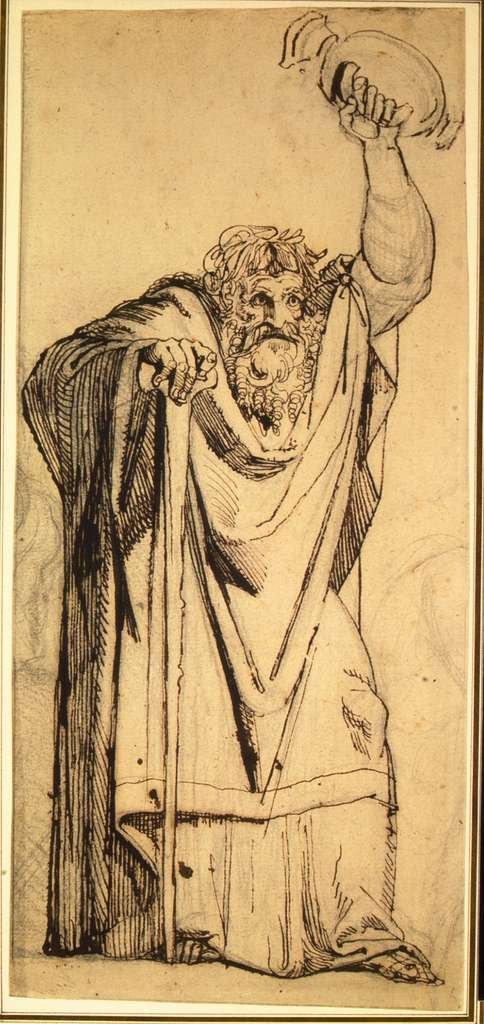
From Moses to Jeremiah
“And ye shall seek Me and find Me when ye shall search for Me with all your heart.” - Jer. 29:31
I learned this verse in high school and have treasured ever since. What a comforting promise! They LORD will be found by those who seek Him. He is watching. He notices the inclination of the heart. He hears our prayers, and His heart responds with tender joy.
What I did not know until last week is that Jeremiah was reminding his listeners of a much older prophecy. He was recalling God’s word spoken through Moses, knowing it was given precisely for the time in which they lived. Jeremiah was called to sound an alarm in Judah. The LORD was about to render judgment. Their time was running out. He had put up with their idolatry long enough. But of course, the people did not listen. They did not heed the prophet’s warning. Jerusalem was taken. The Temple was destroyed. The people ran to Egypt or were taken as captives to Babylon.

Book of the Covenant
Jesus loved the book of Deuteronomy. The gospels record 44 direct quotes from Deuteronomy and 16 additional references. There is good reason Jesus referenced this book more than any other in Torah. Deuteronomy is the summation of God’s covenant with Abraham’s descendants. The Law which Jesus came to fulfill is stated perfectly within its scroll.
Rabbi Jonathan Sacks explains that the ancients employed a set structure for their covenants. Two parties, usually the heads of tribes or nations, would relate the history which had led them to covenant with one another. Then the terms of the covenant would be spelled out in detail. Finally, the document would end with a series of blessings and curses - blessings for those who kept the covenant and curses for those who betrayed it. Deuteronomy follows this pattern perfectly.

Balaam’s Blessings
I have been on vacation for the past week in the high desert of New Mexico. Below the alpine mountains, high bluffs overlook vast stretches of dry rolling hills. I imagine the landscape is similar to what Balaam the prophet saw when he looked over Israel’s camp. Balaam was led to such overlook by Balak the Moabite who hired the prophet to curse Israel. Balak knew that the Israelites had just defeated King Sihon of the Amorites and King Og of Bashan. The LORD was training His people in battle, preparing them to conquer Canaan, and Moab was in their path.

The Bronze Serpent
Sometimes I get headaches which last for days. They are not as extreme as the migraines which afflict some of my friends. For the most part, I am able to push through them. I can do household chores, but I find it hard to write, or to focus on complex conversations when my head hurts. It is the length of these headaches, rather than their intensity, which I find trying.
A couple of weeks ago I was on day 5 of a headache and deeply discouraged. I felt unproductive. I knew that writing would be an exercise in futility, so I turned my attention to a stack of clean laundry which needed hanging. I tucked a few shirts under my left arm and carried the rest to the closet in my hands. Unfortunately, there was a scorpion lurking under one the shirts. After a few steps, I felt a sharp sting on the underside of my left arm. When I realized I had been stung, I dropped all of the clothes and shuddered. I brushed myself off to make sure the offending creature was gone. Then I prayed. To my surprise, these are the words which came out of my mouth. “Lord, please use this scorpion venom to heal my headache.” And so it happened. My headache was cured

Moses and Jesus - The Weight of a Shepherd
For many years I have known that Moses is a prefigure of Jesus, but it has been a challenge for me to see him in that role. The Binding of Issac and the story of Joseph both evoke clearer images of the cross in my mind. Daniel was saved from the pit, Jonah from the belly of the whale after three days in the depths. It is only in this reading of Numbers that I begin to see the cross which Moses bore. It was the daily weight of carrying souls. The burden was so great that at least once, he asked the Lord to die. (Numbers 11:12-15)
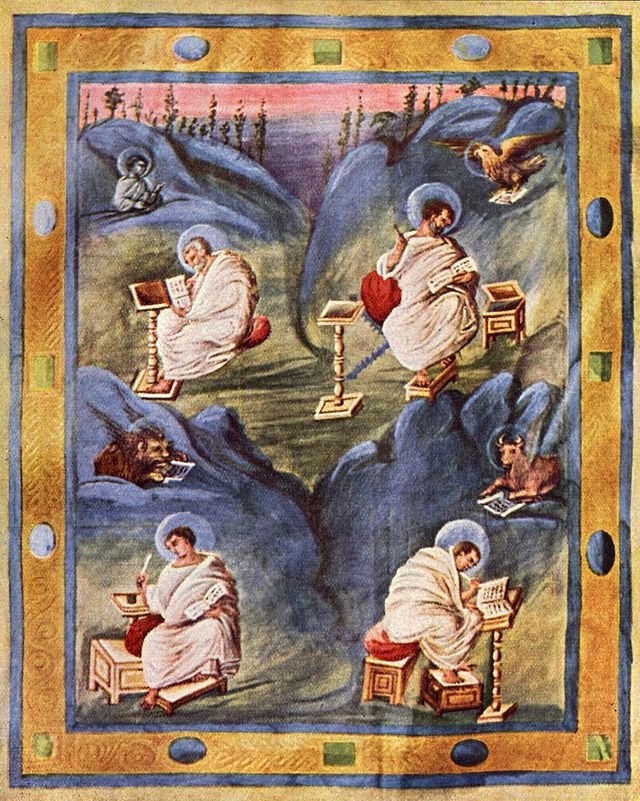
The Big Picture
I remember how surprised I was to learn there were four gospels! It was Easter of 1974 and I had received my first grown-up Bible as a gift. In truth, my “Bible” was only a New Testament, but I did not understand the difference at the time. I was just excited to own such an adult book, and I set out to prove myself deserving of the honor by attempting to read it straight through. I finished the gospel of Matthew in a couple of days and started on the second book, Mark, only to discover that it was a repeat of the story I had just read. I was so confused! It would be many years before anyone helped me understand why we needed four gospels. Taken together, they provide four witnesses to the same story. Considered individually, each emphasizes a different aspects of Jesus’ ministry. Each writer brings a unique perspective, or context, to the telling of Jesus’ story.
There is not quite as much overlap between Exodus, Leviticus, Numbers and Deuteronomy as there is between the gospels; however, the same pattern holds. Exodus paints the broadest picture of Israel’s deliverance and her wanderings. Leviticus retells some of the stories, but emphasizes the laws given to Moses concerning sacrifices and the temple duties of the Levites. Deuteronomy focuses on the moral obligations of the entire people - especially the obligation to love God with all one’s heart and soul and strength. In contrast to Exodus, Deuteronomy emphasizes the end of Moses’ ministry. It concludes with a prophetic song Moses sings before his death. Numbers, I think, reads like Moses’ personal journal. It retells many of the stories recorded in Exodus in greater detail, and in greater sorrow. The theme of Numbers, I believe, is the burden of leadership.

The Red Heifer
There are passages in Torah which seem so foreign to my experience that my brain has a hard time absorbing them. It is not that the words are difficult; my head simply objects to the effort required for imagining rituals from a far distant past. …….
It is easy for my Christian brain to classify these laws as irrelevant and move on. But Paul assures us that “All scripture is given by inspiration of God, and is profitable for doctrine, for reproof, for correction, for instruction in righteousness: That the man of God may be perfect, throughly furnished unto all good works.” - 2 Tim 3: 16-17 The scripture to which Paul refers is the Old Testament, for there was no New Testament at the time. This means that Numbers 19 remains profitable for us today. We know that Father does nothing without reason. He is the original Author writing a a great drama which plays out over the course of human history. So when a passage of Torah puzzles us, He is One to ask. Today I asked Him what He wanted to say about the red heifer and the cleansing water?
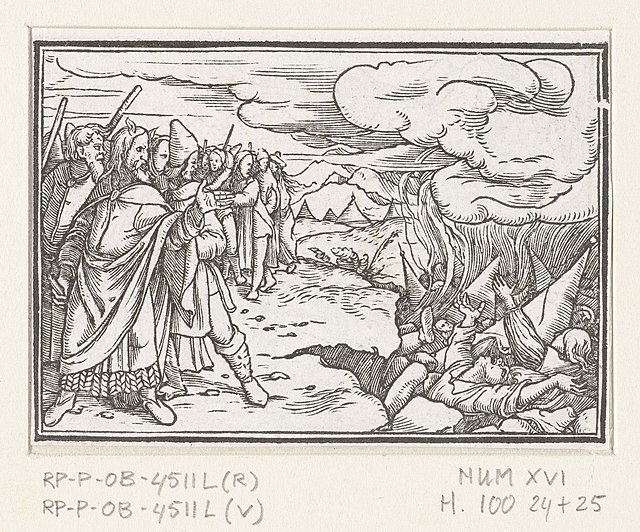
The Rebellion of Korah
Lord, there is no portion of Torah which I have wrestled with more than Numbers 16. Over the past five decades I have at various times been terrified by the story, taken offense at Your judgments, received Your consolation and grieved for your sake. I am thankful for your patience as my heart matures and I come to know You better. The passage begins this way -
1 Now Korah son of Izhar son of Kohath son of Levi, along with Dathan and Abiram sons of Eliab, and On son of Peleth, descendants of Reuben took 2 two hundred and fifty Israelite men, leaders of the congregation, chosen from the assembly, well-known men, and they confronted Moses. 3 They assembled against Moses and against Aaron, and said to them, ‘You have gone too far! All the congregation are holy, every one of them, and the Lord is among them. So why then do you exalt yourselves above the assembly of the Lord?’ 4 When Moses heard it, he fell on his face.
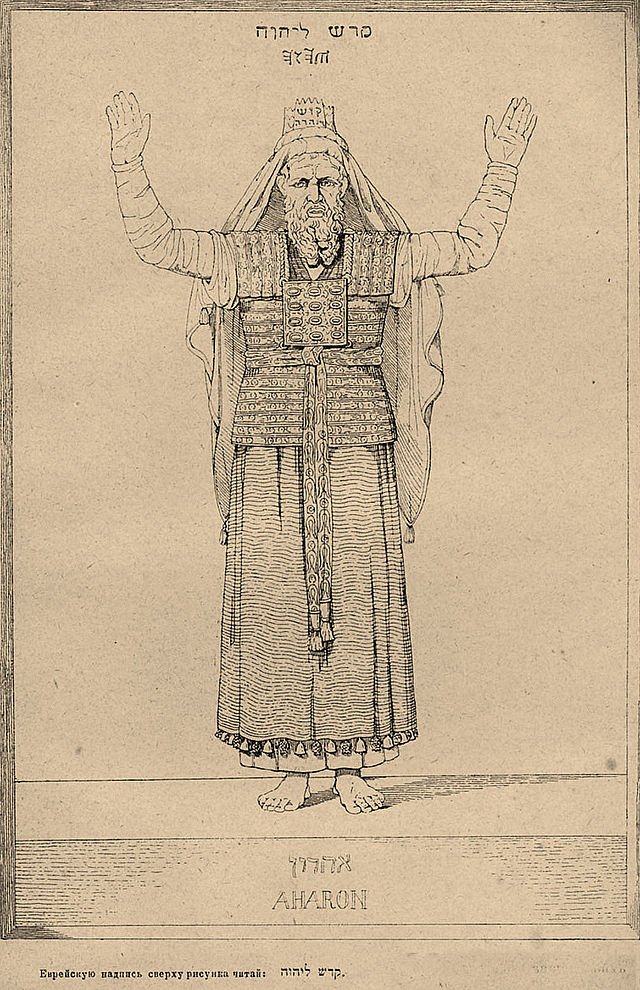
The Blessing and the Name
And the Lord spoke to Moses, saying: “Speak to Aaron and his sons, saying, ‘This is the way you shall bless the children of Israel. Say to them: “The Lord bless you and keep you; The Lord make His face shine upon you, And be gracious to you; The Lord lift up His countenance upon you, And give you peace.” ’ “So they shall put My name on the children of Israel, and I will bless them.” - Numbers 6:22-27

The Jealous Husband
There are many passages in scripture which once offended my youthful sensibilities. Take, for example, the laws concerning menstruation. When I was young it seemed unfair to regard any natural bodily process as unclean as they were all designed by God. Menstruation laws, I thought, discriminated against women since they would necessarily be ritually unclean more often than men. But as I’ve grown older, I’ve come to realize that the category “unclean” is not a moral judgment. It is simply a regulation regarding worship. People who are ceremonially unclean cannot perform certain duties or be present in sacred spaces. Now that I’m older, I see this provision as a mercy and kindness. It would be lovely, I think, to be set apart for seven days, free from one’s normal duties, while dealing with the cramps and inconvenience of one’s period. Of course, human society has rarely accommodated women with such rest - but I can see the Father’s protective intention now that I know Him better.
Another way I see the Father’s love for His daughters is in the odd ritual prescribed in Numbers 5.
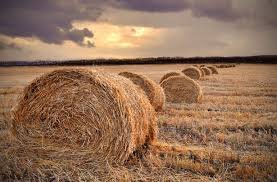
Sabbath for the Land
“Speak to the Israelites and say to them: ‘When you enter the land I am going to give you, the land itself must observe a sabbath to the Lord. For six years sow your fields, and for six years prune your vineyards and gather their crops. But in the seventh year the land is to have a year of sabbath rest, a sabbath to the Lord. Do not sow your fields or prune your vineyards. Do not reap what grows of itself or harvest the grapes of your untended vines. The land is to have a year of rest.” - Lev. 25: 1-5
Why does the land need to rest, Lord? And why should You care so deeply? Over the passage of time, we have learned some of the science behind You wisdom. Dirt should not be tilled every year or it will be stripped of its nutrients. From an agricultural point of view, the land does, in fact, benefit from rest. But is this the reason You command rest; or is soil depletion a limit You have put in place to enforce rest - like the physical exhaustion we animals experience without rest? There is something mysterious about sabbath. Rest, I suspect, is a need which all creation shares because our Creator rests.

Shavuot and Pentecost
It has been ten days since the Church celebrated Pentecost, but Shavuot (the Jewish word for the feast) is still a week away. The de-coupling of the Christian calendar from the Jewish calendar has been a great loss to us Gentile believers. The LORD Himself set the yearly cycle of feasts, and He does nothing without reason. The early Church fathers emphasized the import of Israel’s Passover and Exodus in relation to Christ’s crucifixion and our salvation. They underscored this connection because they saw salvation as one continuous story unfolding across history. The New Covenant of Jesus’ blood is built upon the Mosaic covenant, which in turn is built upon the Abrahamic covenant. Even the New Covenant under which we live points toward a more glorious covenant, a fuller reality to come. Not that the New Covenant of Jesus’ blood covenant will ever be annulled! Jesus will wear His wounds in glory throughout eternity. But His blood was spilled in order to redeem a Bride. And a Bride implies a Wedding, which in turn requires a Marriage Covenant.
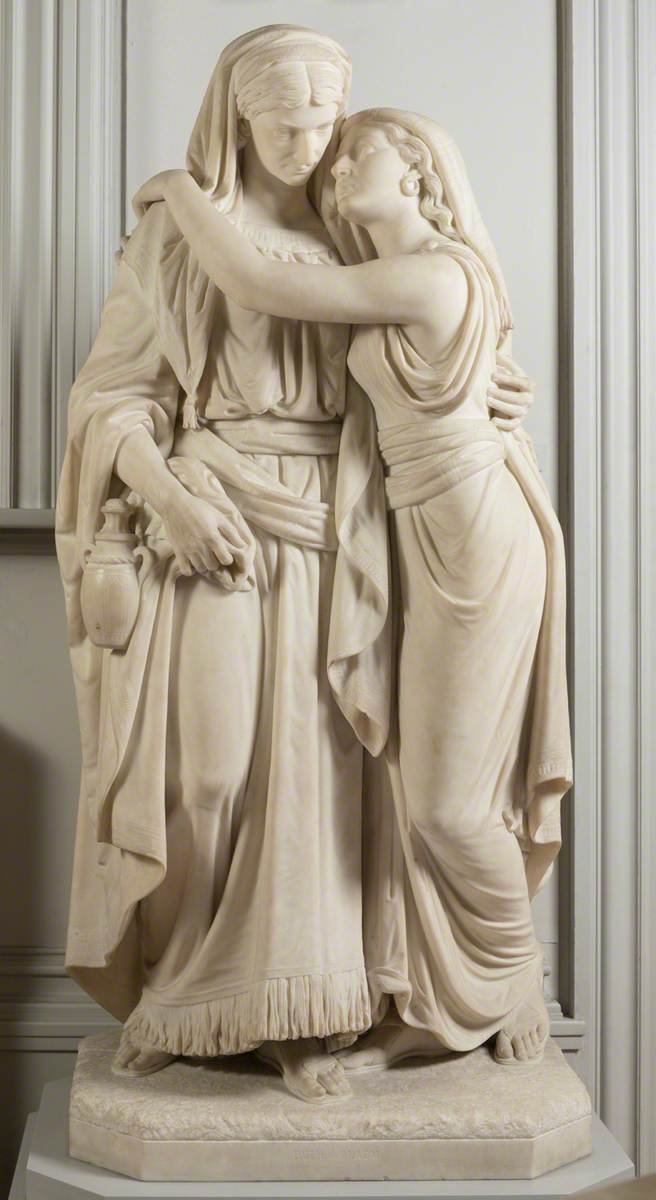
Love the Foreigner
One of the most striking features of the Torah is its emphasis on love of, and vigilance toward, the ger, the stranger:
Do not oppress a stranger; you yourselves know how it feels to be strangers, because you were strangers in Egypt.
Ex. 23:9
For the Lord your God is God of gods and Lord of lords, the great God, mighty and awesome, who shows no partiality and accepts no bribes. He defends the cause of the fatherless and the widow, and loves the stranger residing among you, giving them food and clothing. You are to love those who are strangers, for you yourselves were strangers in Egypt.
Deut 10:17-19

Be Holy
This week I have been contemplating Leviticus 18-19, and once again, I am overwhelmed with gratitude. In my youth I saw these chapters as lists of disparate rules one must follow in order to please a holy God. There was a lot to remember! It seemed easy to go wrong, and I feared offending the LORD. Now that I am older, I see the teaching differently. In stead of feeling fear, I am astounded at the great plea, the invitation, the promise at the heart of these chapters. “ Be holy because I, the Lord your God, am holy.” This is our hope! The LORD is our God and He wants us to share in His holiness. God desires us to be like Him in His most essential attribute so that we can live with Him. But what does holiness look like in a fallen world? How can mortal men be holy?
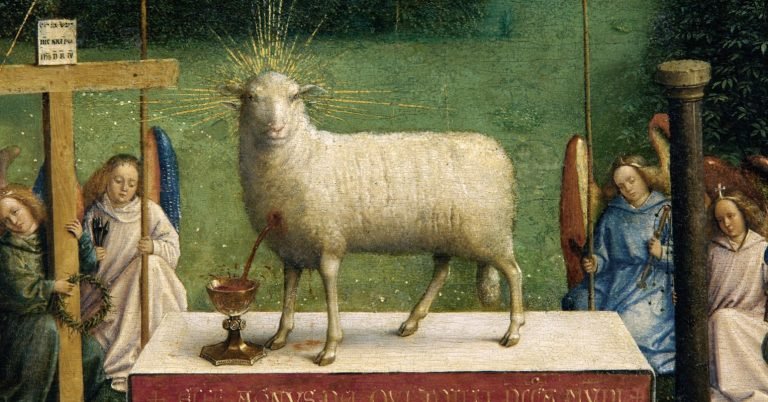
Life in the Blood, Lev. 17 - Part II
“‘I will set my face against any Israelite or any foreigner residing among them who eats blood, and I will cut them off from the people For the life of a creature is in the blood, and I have given it to you to make atonement for yourselves on the altar; it is the blood that makes atonement for one’s life. Therefore I say to the Israelites, “None of you may eat blood, nor may any foreigner residing among you eat blood.” - Lev. 17: 10-12
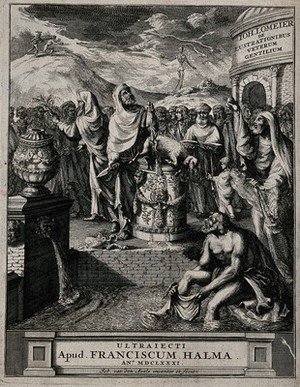
Leviticus 17 - Part 1
Chapter 17 of Leviticus records two of the more mysterious and significant laws in Torah. On the surface, these laws deal with unauthorized sacrifices and dietary restrictions regarding blood. But these regulations point to something deeper, I am certain - truths held in the heart of the Father and safeguarded by the instructions in question. As Paul said to the Corinthians, “now we see in a mirror dimly what we shall see face to face. Now I know in part, but then I shall I know fully just as I am fully known.” I do not understand all these laws signify, but I know they point toward Christ. The signs speak both to His ministry on earth and His eternal ministry before the Father in heaven. I have more questions in my mind than conclusions this week. If anyone reading would like to chime in, please feel free.
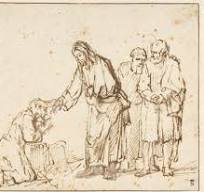
Priests and Skin Diseases
Leviticus keeps surprising me! Who knew that chapters on the inspection of skin maladies could be interesting? I admit, I have found this text more repulsive than fascinating in years past - but I am beginning to understand the fullness of what Luke reports. “Then beginning with Moses and with all the Prophets, He (Jesus) explained to them the things written about Himself in all the Scriptures.” - Luke 24:27. All scripture plays a role in the story of salvation. Everything points to Jesus.

Aaron’s Beard
The Lord spoke to Moses, saying, “Take Aaron and his sons with him, and the garments and the anointing oil and the bull of the sin offering and the two rams and the basket of unleavened bread. And assemble all the congregation at the entrance of the tent of meeting.” And Moses did as the Lord commanded him, and the congregation was assembled at the entrance of the tent of meeting.
And Moses said to the congregation, “This is the thing that the Lord has commanded to be done.” And Moses brought Aaron and his sons and washed them with water. And he put the coat on him and tied the sash around his waist and clothed him with the robe and put the ephod on him and tied the skillfully woven band of the ephod around him, binding it to him with the band. And he placed the breastpiece on him, and in the breastpiece he put the Urim and the Thummim. And he set the turban on his head, and on the turban, in front, he set the golden plate, the holy crown, as the Lord commanded Moses.
Then Moses took the anointing oil and anointed the tabernacle and all that was in it, and consecrated them…. And he poured some of the anointing oil on Aaron's head and anointed him to consecrate him.. - Lev 8:1-10

Loving Leviticus
I am surprised, and somewhat embarrassed to admit, that I prefer blogging to journaling. I am not as careful or as patient in my writing when no one else is looking - and I need the discipline for the education of my own soul. Writing forces me to slow down, to think, to gel half-baked thoughts into words. Writing invites me to explore connections which, frankly, I would miss if I were reading without a written response to the text.
My Holy Week post on penance is a prime example. That little sermon was an exhortation to my own soul. I needed to rejoice in what the Spirit was showing me in Exodus, and put penance into practice in my own life. What I did not know at the time is that the Spirit was preparing my hear for the treasures of Leviticus - treasures which had seemed dull or irrelevant in the past. For the first time in my life, I am excited about Leviticus! The book is changing my relationship with the Trinity.